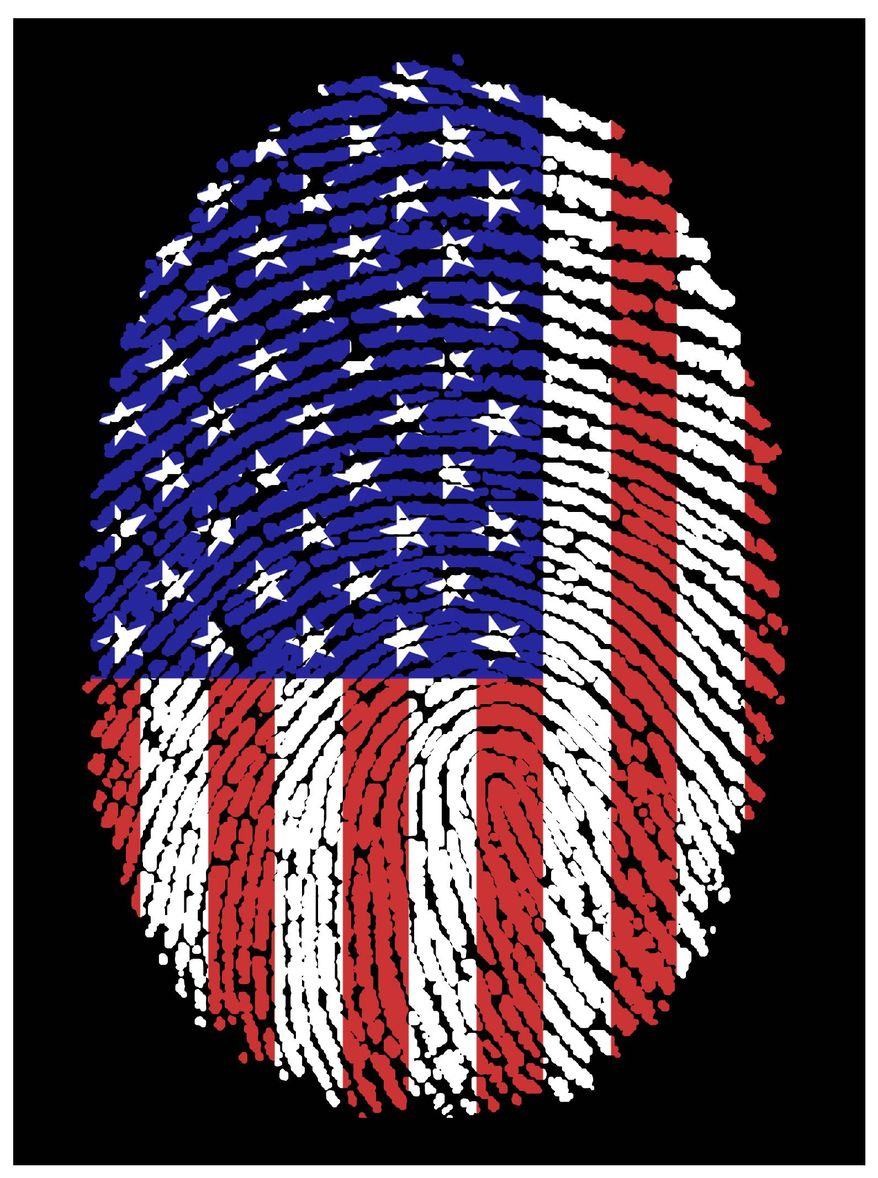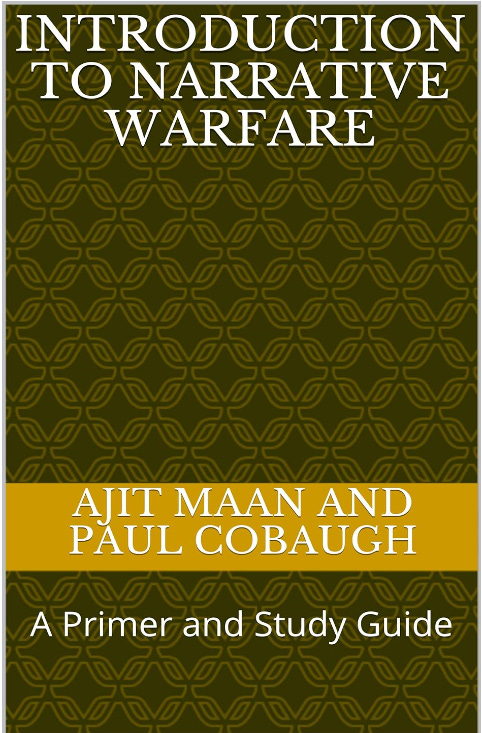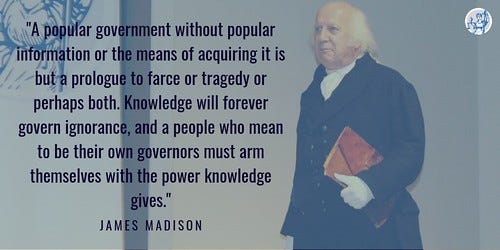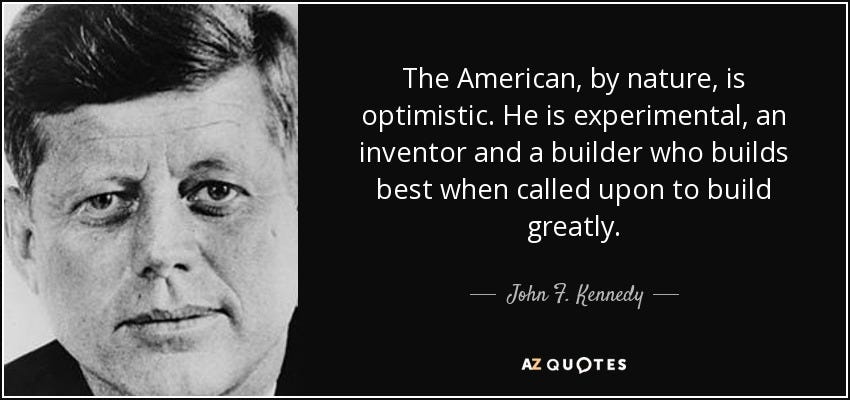Who are we as Americans?
and... is that what you're voting for these days?
Introduction
Today’s piece is actually a substantially reworked version of one of my most heartfelt pieces. This was written in its initial form shortly after the Trump administration took office in 2017. The new portion of this piece is this, the first section of today’s TAT. The actual 2017 story about “who we are as Americans, is part two and is untouched from its original form.
A core of my profession is as an influencer, not the Tik Tok kind but like a marketer, or any type of sales. The product I was selling was national security. The key to any such influence is to focus intensely on analyzing individual and group identity, via a narrative lens. My work is and has long been, exclusively focused on supporting the objectives in our NSS, National Security Strategy. Since late 2009 and whether I operated in a combat zone or otherwise, I have always put narrative at the core of my work.
Narrative itself is a significantly misunderstood word and concept. Most only know it because of high school or undergraduate journalism and literature classes, while that others only know it from the evening news describing narrative, the rhetorical tool. The rhetorical tool, for those well-trained on what actual narrative is, becomes a remarkably powerful tool of influence. The understanding of narrative is difficult for most, even those in my profession and other related professions.
"Narrative is as natural to human beings as breathing because narratives give meaning to events and circumstances. We are meaning-seeking animals and our primary means of meaning-making is narrative. Narrative is the way we create, transmit, and in some cases, negotiate meaning. Narrative framing confers meaning to the facts and elements of a person’s or community’s identity. A critical aspect of narrative is that it is unique to a specific identity or audience. Every person or group of people with similar identities has a unique narrative which expresses who they are, their history and is their lens to the world around them." - Introduction to Narrative Warfare, Primer and Study Guide - Ajit Maan, PhD. and Mr. Paul Cobaugh - Amazon - 2018
None of us have time in our schedules today to go into a deep dive on narrative but the basics can be found in this embedded link. For the purpose of today’s article, just understand that narrative is how human beings have understood the meaning of what’s occurring around them, from the time we’ve walked upright. Narrative derived meaning depends on your own unique identity, although all of us have several common layers of identity that we share with close friends, associates and others. Larger groups like states, nations, organizations etc. also have their own unique layers of identity. To put it more simply, the meaning we reach over what we experience, is derived from, “who we are, identity-wise.”
I wrote today’s piece based on my own identity. It highlights my perspective about the health of our national identity in 2017. My identity, like yours has evolved some since 2017 and this means that I see things a little differently today, but very little. Outside of traumatic or other life-changing events, all of our identities evolve very slowly. Less than ethical marketers and other professional influencers with a record of success, are a threat because they have spent years and decades molding identities to facilitate their wants and needs. They do this to make you automatically compliant with the meaning that they are selling. This slow but immoral evolution of politics and political identities leaves us where we are today, hyper-partisan and at each other’s throats. This is because parties are literally shaping our identity, like a potter shapes clay. The Republican Party has been particularly insidious with this. I’m sure the other side may be as well, but like everything on the left side of the aisle, there is far more “cat-herding” than there is, proactive, well-considered and executed strategy.
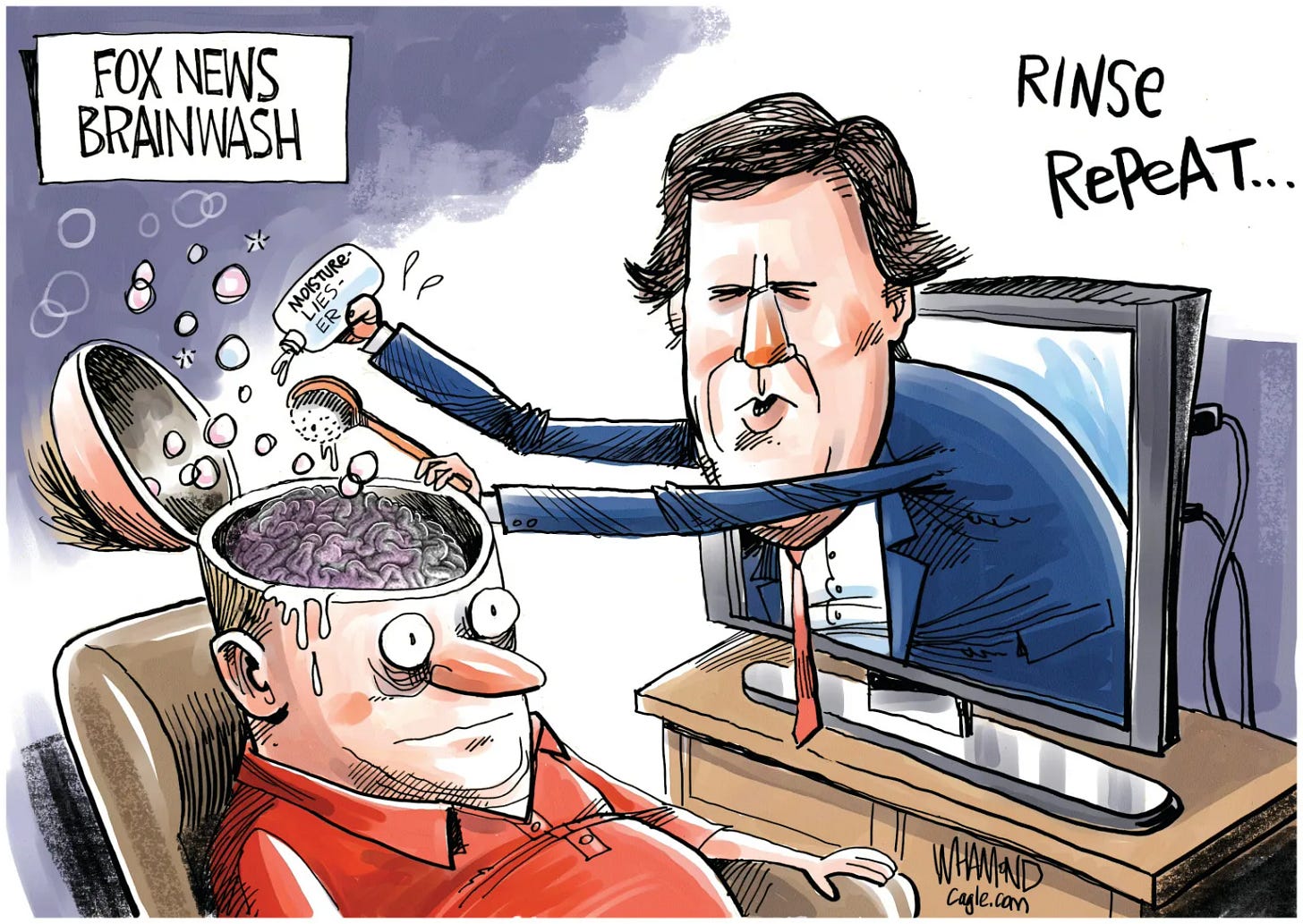
The whole point of being an American is to have freedom of thought and expression, up until a point that such freedom becomes dangerous to others. Although I despise all big-money political machines, today’s Republican party has become a threat to American democracy. I don’t say this lightly, but due to my professional experience, mostly in combat zones against a different type of violent extremism. So… here we are. The right is now, dominated by extremists and violent extremists. They use your identity, that they have shaped since at least the launch of FOX, to get you to do precisely what they need to do, via unethical influence operations. Sure, there are millions of principled conservatives but so what? They have zero say in today’s GOP.
In my youth, both major parties, though very different, still held enough common layers of identity revolving around traditional American values. The Cold War at least bonded most Americans together in defense of democracy, especially a foreign adversary. The Russian attack on our 2016 election is the first time that our nation did not come together to fight back. The GOP stuck with the Trump/ Russian narratives while all others did their best to rally the troops. This is how successful Russia’s and the Soviets before them had been in shaping the identity of the GOP. Today in 2024, they have “reflexive control” over most members of the party. Using the lay term popular in my youth and during the Cold War, they were “brainwashed.” Today’s GOP identity bears zero resemblance to the principled conservatism of my youth.
If we are to recover as a nation and return to a better, traditional version of our national identity, it will take all Americans to take stock of their identity. It requires all to also have the courage to speak up when truth becomes the victim of extremists, regardless of “side.” It’s not just the GOP either. Indentites evolve quite differently for different people and groups, especially when professional and unethical influencers operate without restraint. We are long overdue to stop seeing red vs. blue and start rebuilding a truthful version of the national values our nation was formed to achieve. With effort and diligence, our identities will respond over time, likely decades.
Please see the story below and if you feel up to it, write your own version. If we claim to be what we write, our actions had better well prove it. Remember, truth is what folks do, not what they say.
So, please enjoy the story below, about mine and the nation’s national identity, that I grew up with. We can all be patriots again, but we must jettison the false narratives of political influencers first. As all of you have likely already learned, I am quite fond of quoting our founders. To a person, they all demanded an accurately and well-informed citizenry. They knew and feared an ignorant citizenry, because they knew it would destroy our democracy. I religiously honor their admonition and also share their fears. We are all, better than we are currently showing.
Who are we, as a nation?
These days you might say that storytelling, or narrative is my trade. Mind you, my type of narrative is not the conventional type that you’ll find in a magazine, online or otherwise but a narrative designed to make a point and/ or for a specific purpose such as influence. Prior to retiring from the US Army in late 2015, I’d spent the past decade working in a niche of the US Special Operations Command as a professional “influencer”. Through multiple deployments, I’ve learned first-hand that one of the most effective tools in the influence toolbox is narrative.
During our recent election for example, I watched in horror as the type of narrative I’d used in combat zones was employed at home and against my fellow Americans. These narratives had become more than just a tool, they’d been virtually weaponized by political candidates and outside influencers such as Russia. Some of the most influential narratives are those that weave identity (both personal and collective) into a story that gives them meaning and triggers some level of predictable behavior. This is precisely what occurred during our election cycle.
Recently, as I was doing some professional analysis regarding the winners’ election campaign narrative, it left me pondering a frightening question; “if narrative is about identity, was the winning candidates’ narrative really the national narrative I grew up with and related to”? Like all Americans, my identity, is intrinsically linked in some respect to the version of the US national narrative we grow up with. This is one of the reasons that many of our current headlines are rife with internal conflict for me as well as tens of millions of like-thinking Americans.
The American narrative and hence the personal identity of my youth, was very much a product of my Midwestern, rural roots, which looked, sounded, tasted and smelled like the world depicted by the iconic American Illustrator, Norman Rockwell. My veteran parents, aunts, uncles, cousins and friends all represented true red, white and blue, and many had served in uniform during one conflict or another. The only true American narrative in our eyes was one defined by soul-stirring principles like, equality, freedom, strength, justice, compassion, industry, education, innovation and unbounded potential. Truth be told, my family, like the nation had flaws, but my perception was that both were doing their honest best to fix them. If we couldn’t, we’d at least team up with someone who could. In my eyes, Americans of all types were as much a team as were my beloved Cleveland Browns or Cincinnati Reds. Sure, Mom was a Republican and Dad a Democrat, but the major Parties weren’t nearly as far apart then, and the discussion of issues, always revolved around the facts so painfully absent in our current political environment.
The true state of the nation during my youth was in my view, part naïve and part Pollyannaish. With alarming regularity, the John Wayne version of the Great American narrative ran afoul of the truth and the facts, for so many citizens. This though, is precisely one of the most important aspects of narrative. Narrative is about meaning, not truth and more precisely, meaning as perceived through the filter of our own identity. For example, though a nation proudly proclaiming sacredly held principles, the sad truth was that these principles did not apply to all people (s) equally, be they at home or abroad. In fact, some segments of US society had a more intimate and painful view of these discrepancies than I did. Despite the discrepancies, there was a “rough similarity” to most Americans’ collective identity. One reason for this is that many of the vehicles of our narrative, such as radio, TV, film, literature, music etc. portrayed the nation relatively analogous to what Rockwell had illustrated on the cover of Post Magazine or as John Wayne portrayed on the big screen.
It would not be until the 60s that my adolescence and the nation’s stumbled into the chasm between narrative and reality. Somehow, the realization that our nation had warts, acne and more than a few emotional disabilities, felt like finding out that there was no Santa Claus, Easter Bunny or Tooth Fairy. The Rockwellian national identity I had come to know, love, respect and personally identify with felt foreign to the one portrayed by Walter Cronkite on the 6 o’clock news. Could it be that this is what some might describe as an acute “identity crisis”? If so, the identity crisis wasn’t just mine, it was the collective identity crisis of the nation.
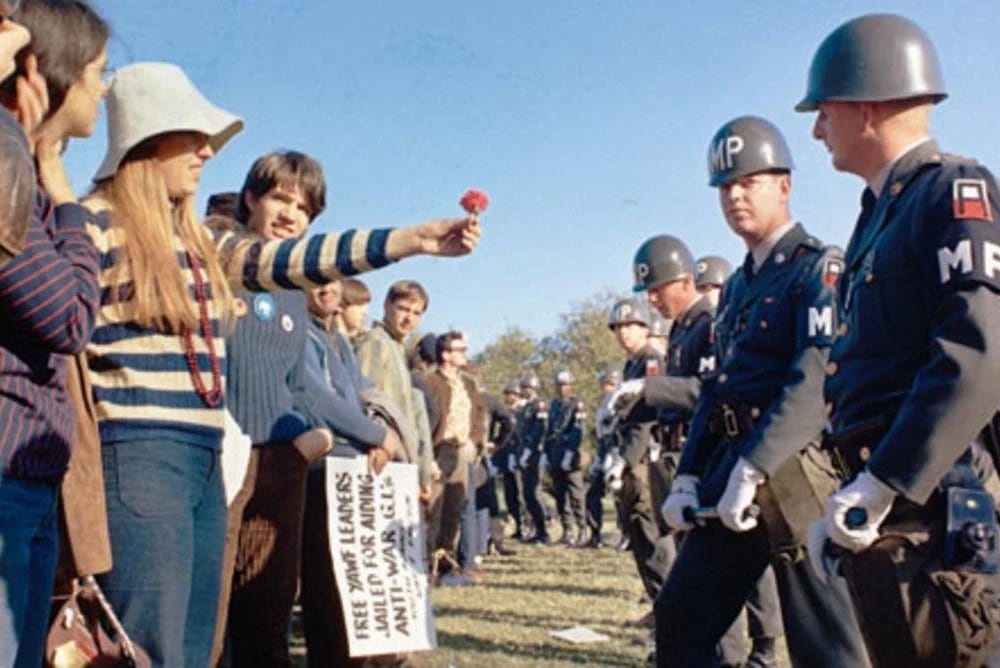
The US, during the 60s and early 70s was immersed in violent disagreement with itself. War and daily war protests, feminism, Civil Rights, etc. were both symptom and disease, caused by picking the scab from the wounds of untruthfulness in our historical narrative. Any citizen, paying the slightest attention must have wondered if the identity of Lady Liberty was in fact who we’d long believed, or had she been hiding an imposter beneath her flowing robes? Were our long-held beliefs true or merely dishonest fabrications, like those I’d long heard from midway carnival barkers at the County Fair. The barkers intensely tried to convince me that I could actually win that giant teddy bear for my girlfriend if I would just spend my last 5 dollars at his rigged shooting gallery?
For more than a decade after the end of Vietnam we struggled painfully to find answers to painful questions. Everyday life dictated that I, and the nation, bravely soldier on. Pretty soon, by putting one foot in front of the other, we both began to shed the doubt and angst of adolescence and in fact, did move on. Personal and collective doubt slowly slipped quietly to the wayside, making room for our travails to pass.
For me, the demands of first the Army, then marriage, career, children etc. and just life in general solved many of my identity questions. In a sense, it was for similar reasons that the nation also solved hers. Just doing “the right thing” or at least attempting to do so in accordance with our values, was apparently part of the cure. The unalterable truth in this cure is that neither person nor nation, can succeed in doing “the right thing” if is not already part of their DNA.
With the violent turbulence of Vietnam “in the rear-view mirror” and a renewed sense of national pride, we mostly moved forward from the early 80s through the early 2000s. Both personal and national interwoven identities suffered occasional minor crises which inflicted some temporary injury. Divorce, Enron and similar scandals, the economic downturn from 1989 thru the early 90s, the first Gulf War, Presidential and Congressional scandals and so on and so on. Each challenge brought reflection and serious reexamination of just who we were, but thankfully, not the dramatic crises of the 60s. In the end, both America and I had survived, we were mostly comfortable with who we were, and our identity and narrative had not only survived, but prospered.
The point of this abbreviated modern history lesson about two identities and their related narratives was to sort out the question I posed at the beginning of this piece; “if narrative is about identity, was the winning narrative in our past election really the national narrative I grew up with or related to”? Gratefully, the answer is a resounding “no”. It may be true that the characters in Rockwell’s illustrations would now be portrayed differently. Maybe it’s also true that he’d tell a slightly different story with those same illustrations.
Just as West Side Story is a modern retelling of Romeo and Juliet, Rockwell would still be painting all the “soul-stirring principles like, freedom, strength, justice, compassion, industry, education, innovation and unbounded potential”, that I had felt in my youth. Todays’ American figures would be more diversified and illustrated in different settings, but I haven’t the slightest doubt that he and our nation would both reject any, but the purest potential of our historical principles.
It is an enormous relief, that the soul-searching analysis required to write this article, proved to me that the country I love, still has the noble identity of our collective youth. We may be currently acting out with hate, ignorance and intolerance, but I no longer have the slightest doubt that this phase too will pass, albeit as painfully as it did the 60s. Finally, and thankfully, I realize that our Founding Fathers pursuit of ensuring, by way of our Constitution, our natural and inalienable rights, has not reversed itself but merely stumbled on the rocky road of history.
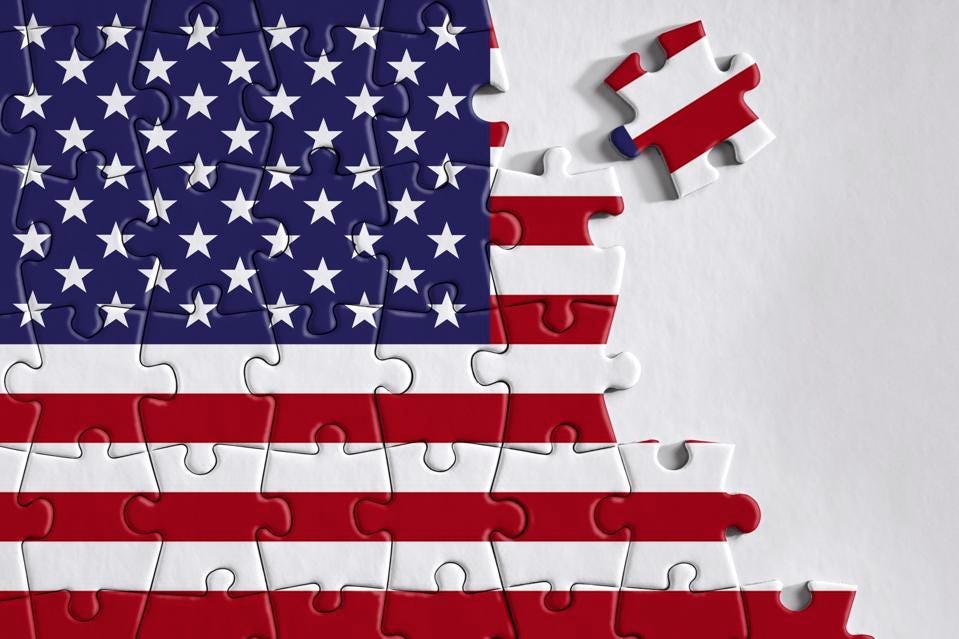
Finally, I will add here, a short 2024 update.
Now, with our next presidential election upon us, the identity wars still rage but we may have finally moved on from our modern “Gettysburg,” the turning point of the Civil War. We are slowly beginning to shed some of the fake patriotism infecting half of our voters. More Americans are willing to assume leadership, not of political parties but in their communities, and challenge those attempting to re-shackle our nation to the ideology of the South, during that catastrophic and uniquely American tragedy.
Like the painful era of Yellow Journalism at the end of the 19th century, most are fed up with and ashamed of the insane conspiracy theories, that have cost them family, friends and national security. Those operating on false patriotism are being reacquainted with the pillar of our justice system, that no one is above the law, and that unchecked greed by the elite, will never help those pretenders shed their financial burdens. Churches of all types have thrown down the gauntlet and openly protest the same Christian Nationalism that served as the ideology of the Civil War South.
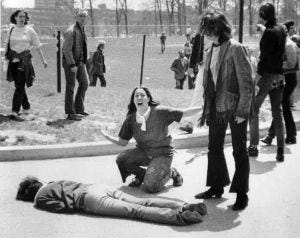
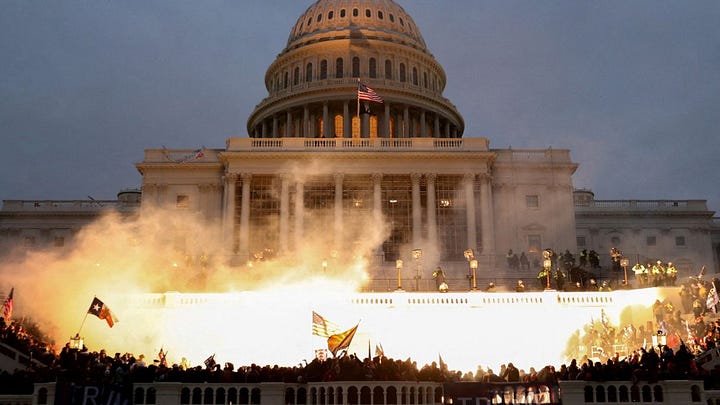
We are painfully learning that hate and intolerance are septic infections to the body of liberty, and that American exceptionalism fails on the backs of fake, ideological, alleged “experts.” Growing up and in 5th grade, not far from Kent State’s traumatic shooting and now retraumatized by January 6th, resonates with and stirs my American values. Those values rise instinctively to dictate that violence against our fellow citizens for political purposes, is a grievous, near mortal wound to our democratic republic. These types of events, trigger something deep in all Americans still in touch with their American heritage. We have always stood for liberty, fought fascism to its knees during WW II and deterred our most dangerous enemy, in conjunction with our NATO allies. We will not fail.
Like 2016, America is still at arm’s length from a full recovery, from this most un-American of eras, but so long as there is liberty’s light on the horizon, beckoning hope and opportunity, our founders’ dreams are still alive.
My very best for your week,
Paul


